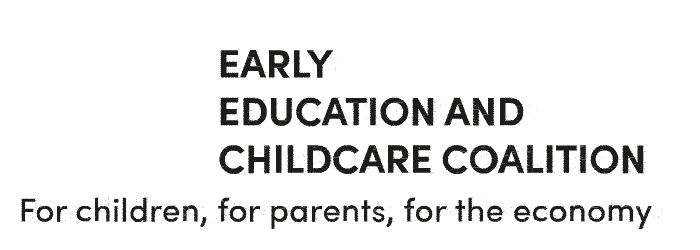Building England’s Early Education Workforce
Building England’s Early Education Workforce’ is our collaborative research and advocacy programme aimed at improving the pay, conditions and status of people working in early education in England. A key objective of this programme is to help shape a new workforce strategy that will align early years with the wider education profession.
Our approach focusses on raising the status of the early education profession over the next three years through improved public perception, pay, conditions and career development pathways. Evidence suggests that this is the best way to reduce turnover and increase recruitment into the sector. It is also an essential part of recognising and respecting the essential infrastructure of the early education workforce. A well remunerated, happy, experienced and stable workforce is vital in supporting more children to reach a good level of development – a key aim of this government.
This programme is underpinned by evidence, including lived experience and tested policy solutions, supported by strategic partnerships with policymakers and key actors.
Building Shared Language
The findings from our model of change work will shape a series of campaign moments. We will create messaging toolkits supported by webinars and public events to ensure the findings and outputs are effectively disseminated. The Coalition will work to engage a broad base of supporters in a shared language and campaigns that recognise the importance of early educators to the whole of society.
Our Test and Learn Pilot
This all sits alongside a ‘test and learn’ workforce data pilot across Greater Manchester Combined Authority (GMCA). The aim is to build a prototype and business case for a new national arms-length body, codesigned with early years providers and policymakers. The current lack of data across the sector means it is difficult to make significant progress on recruitment, retention or workforce development. Our aim is to produce a new approach to data collection that delivers mutual benefits for providers, practitioners and policy makers and will demonstrate how robust data collection enables better workforce planning and development.
Creating a Model of Change
Our starting point is creating a model of change in partnership with the University of Leeds Business School (home to the Early Years Employment Research Hub). The model will be based on international examples where the status of early years professionals has been successfully elevated, as well as lessons from other UK occupations with comparable workforce demographics. This will inform the development of an effective narrative for changing perceptions, tested with key stakeholders and audiences.
Central to this project is ensuring that those working in the profession and with direct lived experience are at the forefront of advocacy efforts and are active participants in policy design. Therefore, the programme will be shaped by two specialist groups:
1.
A Sector Advisory Panel made up of frontline early years professionals
2.
A Stakeholder Expert Group made up of decision makers and policy advisors across the sector
This programme will be delivered in partnership with
Want to know more?
For further information about our Building England’s Early Education Workforce programme please contact: info@earlyeducationchildcare.org
Signed by:
-
4 in 10
-
Community
-
National Children’s Bureau
-
Pregnant Then Screwed
-
Twins Trust
-
Young Women’s Trust
-
Mumsnet
-
Early Years Alliance
-
Fawcett
-
Coram
-
Fatherhood Institute
-
Nanny Solidarity Network
-
National Education Union
-
PACEY
-
Working Families
-
FSB
-
Joseph Rowntree Foundation
-
LEYF
-
Oxfam
-
Save the Children
-
The Sutton Trust
-
Unicef UK
-
Early Education
-
Unison
-
Women’s Budget Group
-
Gingerbread
-
TUC
-
Dingley’s Promise
-
BookTrust
-
Magic Breakfast
-
CREC
-
Speech and Language UK
-
Kids
-
Praxis




